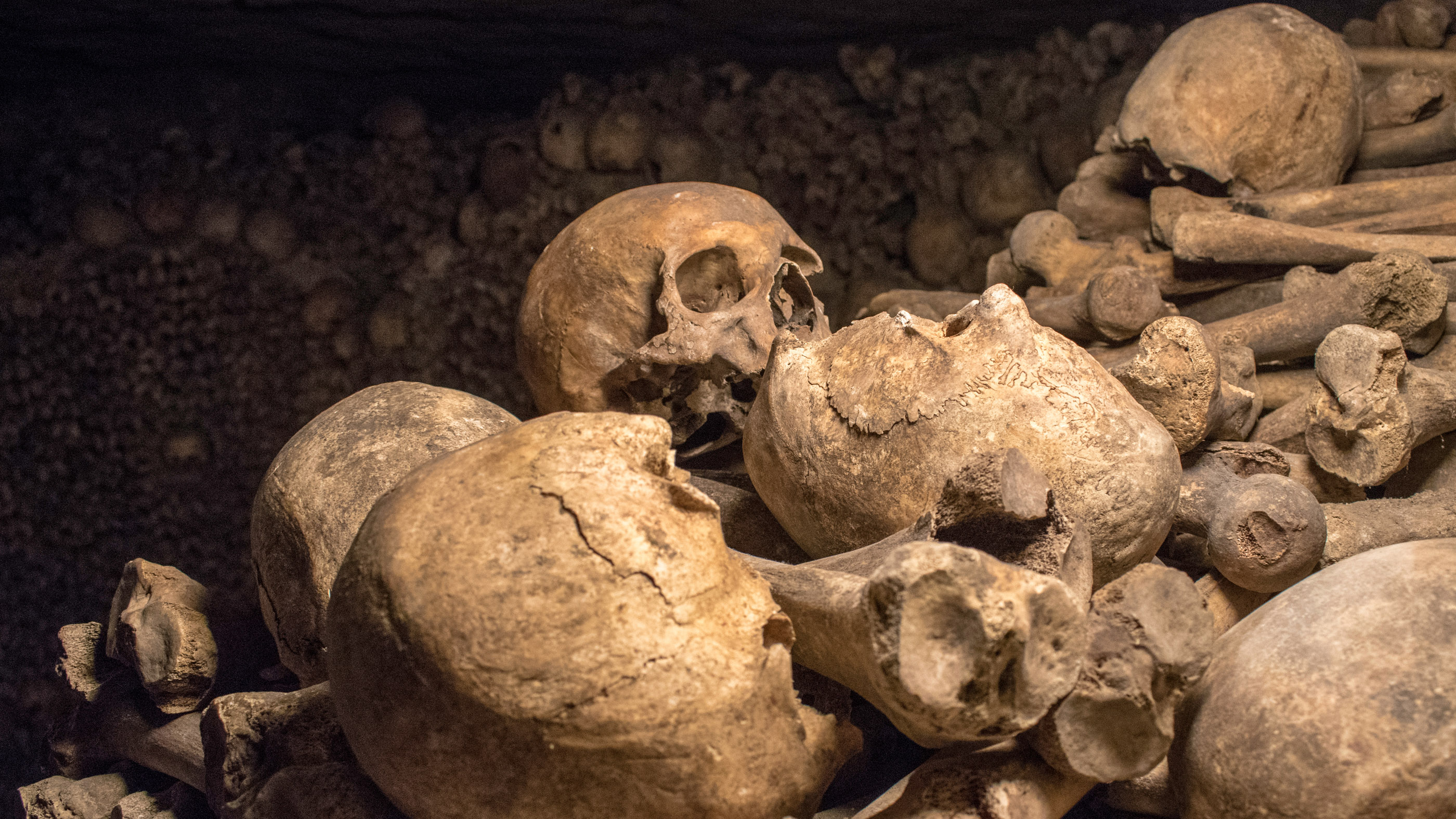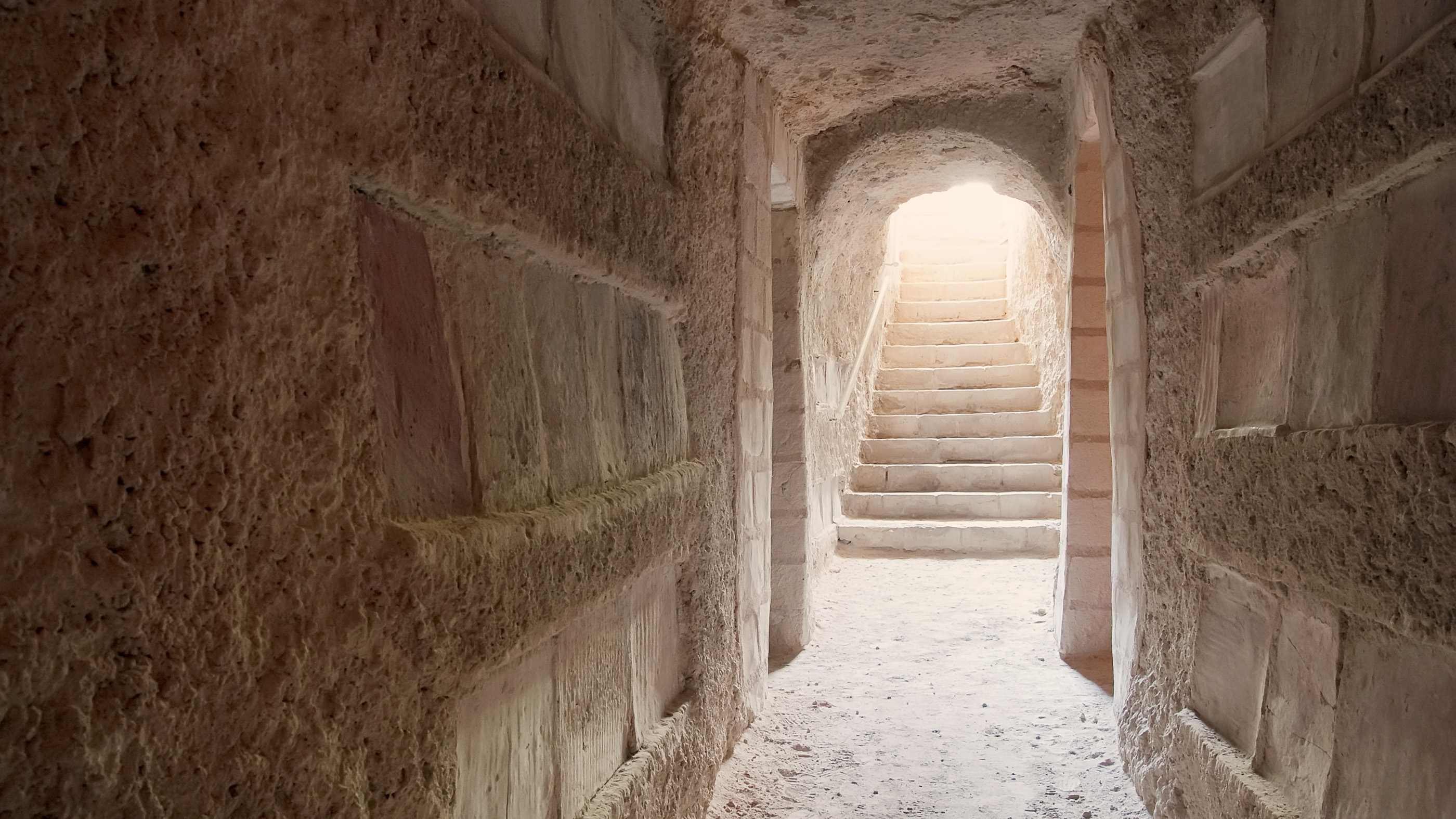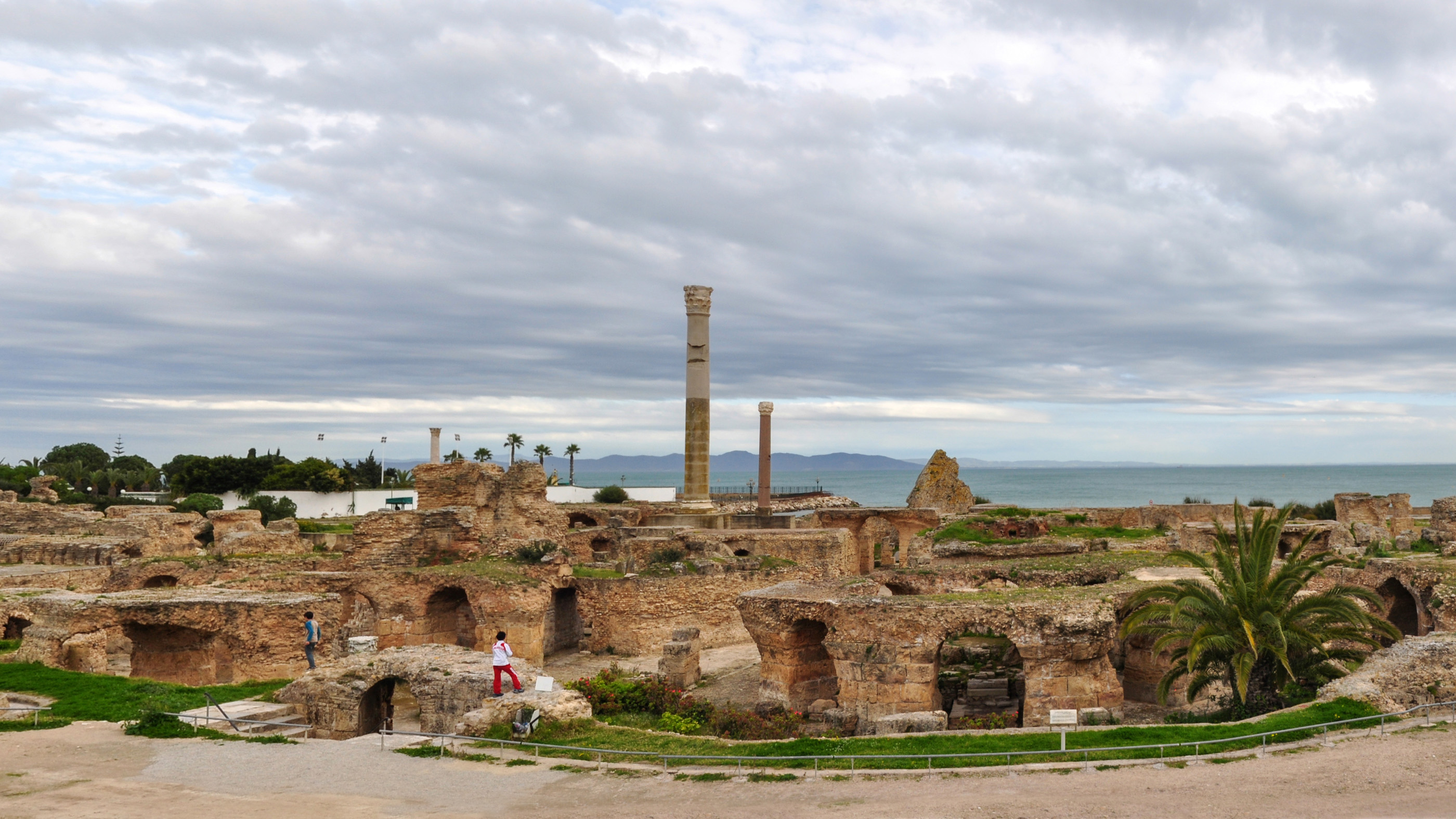Looted skulls and human remains are being sold in black markets on Facebook

Get the world’s most fascinating discoveries delivered straight to your inbox.
You are now subscribed
Your newsletter sign-up was successful
Want to add more newsletters?

Delivered Daily
Daily Newsletter
Sign up for the latest discoveries, groundbreaking research and fascinating breakthroughs that impact you and the wider world direct to your inbox.

Once a week
Life's Little Mysteries
Feed your curiosity with an exclusive mystery every week, solved with science and delivered direct to your inbox before it's seen anywhere else.

Once a week
How It Works
Sign up to our free science & technology newsletter for your weekly fix of fascinating articles, quick quizzes, amazing images, and more

Delivered daily
Space.com Newsletter
Breaking space news, the latest updates on rocket launches, skywatching events and more!

Once a month
Watch This Space
Sign up to our monthly entertainment newsletter to keep up with all our coverage of the latest sci-fi and space movies, tv shows, games and books.

Once a week
Night Sky This Week
Discover this week's must-see night sky events, moon phases, and stunning astrophotos. Sign up for our skywatching newsletter and explore the universe with us!
Join the club
Get full access to premium articles, exclusive features and a growing list of member rewards.
Updated July 3 at 9 a.m. with a response from Facebook.
In 2013, an American collector visiting Tunisia entered the Sousse catacombs — an ancient necropolis that holds some of the oldest Christian burials in the world — and stole a skull with a "very dark ancient patina" (as he described it) during renovations of the catacombs. The collector put the skull up for sale in a private Facebook group for $550, telling his tale of looting in the sales listing.
Other members of the group were excited by the looted skull, with some posting comments about how "beautiful" it was. What the collector may not have realized was that the group wasn't as private as it seemed. A Live Science reporter posing as a person interested in skulls had infiltrated the private Facebook group, and several other groups like it, and for 10 months kept track of human remains that were being sold.
Related: 30 of the world's most valuable treasures that are still missing
The Live Science investigation unlocked a world in which human remains are often sold with little information about their origins — raising questions about how they were acquired. While the Sousse catacomb skull was exceptional in that the collector openly admitted he looted it, Live Science documented countless other human remains with no back stories, leaving open the question: How many of these remains were looted or stolen?

Robbing graves
"There is no need or justification for any private individual to own any human remains."
Ryan Seidemann and Christine Halling
Most countries around the world (including Tunisia) have banned the looting of archaeological sites and graveyards. In the United States, "there is no law in any state which grants permission or acknowledges that it is legal to sell human remains. On the contrary, it is expressly illegal in a number of states," said Tanya Marsh, an expert in cemetery and funeral law at Wake Forest School of Law in North Carolina. In the private groups, some sellers claimed that they got their bones from medical colleges; but even if those claims were true, "there are no exceptions for human remains even if there is documentation that they are from the collection of a medical school or museum," Marsh told Live Science.
"It is doubtful that any person, even those donating their remains for science, ever wanted to be or expected to be a personal curio for an individual," said Ryan Seidemann and Christine Halling in a jointly written email to Live Science. Both work in the Office of Louisiana's Attorney General in the Lands & Natural Resources Section Civil Division, with Seidemann leading the division and Halling as an archaeologist.
Get the world’s most fascinating discoveries delivered straight to your inbox.
Related: The 6 most gruesome grave robberies
"Even more clear are the human remains that derive from tombs or burials. Those people intended for their remains to stay in their burial space. Violation of this intent for the purposes of seeking to privately own or possess the remains is both a legal and an ethical violation," Seidemann and Halling said. "The legal and ethical implications are clear in our opinion: There is no need or justification for any private individual to own any human remains, whether they are the remains of adults or children."
Gretchen Peters, co-founder of the "Alliance to Counter Crime Online," an organization fighting crime and corruption, said that the trade in human remains is "fundamentally disrespectful to the dead" and is encouraging grave robbing around the world.

Sousse catacomb skull
Each skull or artifact stolen from graves becomes a missing piece of history, a window no longer available for archaeologists and others into civilizations before ours. For instance, the Sousse catacombs, which extend about 3.1 miles (5 kilometers) — contain the remains of about 15,000 people including many early Christians who would have used the catacombs as a meeting place to avoid Roman persecution. At the time, some 2,000 years ago, Tunisia was ruled by the Roman Empire. By studying those remains, archaeologists have been learning about how life changed in Tunisia as more people converted to Christianity. For instance, scholars are in the process of conserving the mosaics in the catacombs and are searching for clues about how art styles changed as people adopted Christianity.
Related: In Photos: A journey through early Christian Rome
The seller of the Sousse catacomb skull is based in Washington state and sold numerous other human remains in the private Facebook groups. Live Science contacted the collector through Facebook and posed as a person interested in the skull. The collector didn't reply to the questions and the sale posting was later deleted.
Tunisia's Ministry of Culture and a few archaeologists in Tunisia also didn't respond to requests for comment about the Sousse skull.

Remains of children, infants, for sale
The Sousse skull is just the tip of an iceberg of private online sales of undocumented human remains. The remains of fetuses, infants and children are particularly popular in these private Facebook groups. One buyer wrote in a post that they were "looking for children's skeletal pieces or organs." They would have found many for sale. Buyers and sellers did not usually discuss why they were interested in child and fetus remains.
On the higher-price end a mummified child, who the seller claimed was 6 years old when he or she died in the 1700s, was posted for sale for 11,000 euros ($12,247). No provenance information was given in the sale posting, but the seller wrote in large caps that it is "NOT A GRAVE ROBBERY."
Related: In photos: Inca child mummies
A lower-priced example is a skull of what a seller said was probably a "young teen female" offered for $1,300. No provenance information was listed in the sales posting, although the seller claimed that it was legally acquired and had proper import documentation. Whether or not any of the remains came from a criminal act is not known, though this investigation didn't turn up clear evidence that modern-day crime victims are making their way into the human remains trade. Experts contacted by Live Science had a range of opinions on this question from doubtful to possible.
Another seller posted the skull of a "young teenager" for $1,000; the teenager's "wisdom teeth not protruding yet," the seller wrote in the posting. The seller claimed the skull came from a "medical school in Philadelphia." It's not clear how the seller got it.
Fetal remains were sold in the groups, sometimes preserved in jars of liquid. For example, a tiny fetus whose soft tissue appeared well preserved was posted for sale for $2,350. It was listed as a "retired medical specimen," with no other information given.
An "almost full-term" fetus was selling for $6,495. The seller claimed in the posting that it was from an "old teaching collection." The seller also claimed that the mother of the fetus "wanted this specimen to live on via preservation and to stimulate curiosity and further education about the human body."
Is this legal? That may vary by region. "There is no affirmative law in the United States that permits the sale or possession of human fetuses," Marsh said. "There is a trend of state legislatures adopting statutes that treat fetal remains as human remains — one of the impacts of those new statutes is that fetal remains, regardless of gestational age, would be required to be buried, entombed or cremated and statutes which expressly forbid the sale of human remains would also apply to fetal remains," Marsh said.
Spotty enforcement
How well existing laws are enforced is another question. Rick St. Hilaire, a lawyer with Red Arch Cultural Heritage Law & Policy Research, said that in his experience state historic preservation officers, tribal officers and customs officials tend to be most aware of the human remains trade. "This area is not one that would attract mainstream attention among law enforcement," said St. Hilaire, noting that the issue does not get as much attention as human trafficking and drug enforcement does.
Some "law enforcement agencies may be aware of the trade, but unaware of the legal options that exist to stop the commodification of human remains," Seidemann and Halling said.
Facebook actually has a policy that bans the sale of human remains on their site, but does a poor job of enforcing it, said Katie Paul, co-director of the ATHAR project, which investigates the trafficking of cultural remains.
"Because commerce on the internet and on social media is so poorly regulated, it's literally like the Wild West with no sheriffs."
Gretchen Peters
Bone knives, canes and 'human leather'
Sellers sometimes posted items made partly of human remains, such as knives and walking sticks that incorporated human bone. One walking cane, on sale for $300, had a handle made of a human femur, and the seller claimed that the femur came from a skeleton dating back to the 19th century. "Don't miss out on this one of a kind piece," the seller said. The same seller also offered a knife with a handle made out of bone femur for $260.
One particularly unusual item was a 1917 edition of the book "Diseases of the Skin" by Dr. Richard Sutton that the seller rebound with "human leather." The seller claimed that the human remains used to create the leather came from a "retired medical specimen." The seller added, "I personally acquired the material, had it turned into leather, and performed the binding myself." The asking price was $6,500 and was successfully sold.
Tip of the iceberg
These examples represent only a small fraction of the sales that went on in these private groups. There were many more human remains of interest, such as a Peruvian elongated skull selling for $10,500. No provenance information was given in the posting. This is a particularly fraught sale, as Peru has been ravaged by looting, with the Global Heritage Fund estimating that 100,000 tombs have been plundered.
Related: 7 Biblical sites ravaged by modern-day looters
The skulls of people with elongated heads, found in Peru and other parts of the world, come from the practice of head-binding. Head binding in Peru became popular around A.D. 1300 and may have been used to signify what social groups a person belonged to, researchers reported in 2018 in the journal Current Anthropology.
Many sites have banned or restricted the sale of human remains. For instance, eBay has banned the sale, and while human remains are sold on Instagram, Live Science found that some accounts on Instagram that sell them have been shut down in recent months.
Why buy human remains?
From images posted in the private groups, the Live Science investigation found that many members appear to be purchasing human remains for display in their homes. Human remains were often shown in cabinets and on desks. Occasionally a skeleton would be displayed sitting in a chair. In a few instances, skulls had engravings carved into them, including one with an image of the pagan goat-like deity Baphomet on it. Sometimes collectors modified skulls so that they could be used to hold flowers.
Related: 25 Grisly archaeological discoveries
Collectors appear to have a variety of motivations for buying human remains, said Shawn Graham, of Carleton University in Ontario, and Damien Huffer, of Carleton University, both archaeologists who study the trade in human remains, in a jointly written email. Some collectors seem to be driven by a fascination with death, while other collectors have an interest in trying to replicate displays of human remains shown in museums. There also seems to be a sense of kinship among those in the human remains trade, the researchers said.
Can the trade be stopped?
A number of experts that Live Science talked to said that Facebook needs to enforce its existing policy banning the sale of human remains on their platform. Graham and Huffer said that law enforcement agencies need to get better at enforcing existing laws against the sale of human remains.
In addition, according to Peters, governments should pass regulations that put the onus on social media companies to remove illegal transactions from their platforms. "Because commerce on the internet and on social media is so poorly regulated, it's literally like the Wild West with no sheriffs," Peters said.
Live Science also contacted Facebook to alert the company of the human bone trade. In response, a spokesperson said that once they become aware that a group has violated their policies they take action against them. As of July 3, Live Science found that three of the private groups had been shut down, although others remain in operation.
Originally published on Live Science.

Owen Jarus is a regular contributor to Live Science who writes about archaeology and humans' past. He has also written for The Independent (UK), The Canadian Press (CP) and The Associated Press (AP), among others. Owen has a bachelor of arts degree from the University of Toronto and a journalism degree from Ryerson University.
 Live Science Plus
Live Science Plus










